Urban India is a peer-reviewed, bi-annual journal, published regularly by the National Institute of Urban Affairs since 1981. Since its inception, the journal has been publishing meaningful urban research and facilitating informed debates on India’s urban sector. The journal tries to bring forth to the readers new concepts, theories, policies, debates and methodological approaches related to urbanization, urban development, governance, housing and infrastructure, inclusion, municipal finance, climate change, sustainability, transport, mobility, migration, sprawl and other related issues in India. In addition to research articles, Urban India also publishes perspectives and book reviews.
The journal primarily aims at:
- Spearheading new ideas and facilitating informed debates
- Documenting journey of India’s urbanisazation story through various research papers, data analytics, good practices and book reviews
- Engaging researchers, policy makers, academia, civil societies, non-governmental organizations in the policy challenge discourse
The journal is listed in UGC-CARE
Editor
Debolina Kundu, National Institute of Urban Affairs, New Delhi dkundu@niua.org
Managing Editor
Pragya Sharma, National Institute of Urban Affairs, New Delhi bkar@niua.org
Associate Editor
Sayak Dutta, National Institute of Urban Affairs, New Delhi psharma@niua.org
Editorial Advisor
Director, National Institute of Urban Affairs, New Delhi
Editorial Board
|
Abdul Shaban |
Deputy Director (TISS Tuljapur Campus) and Professor, School of Development Studies, Tata Institute of Social Sciences, Mumbai |
|
Amita Bhide |
Professor and Dean, School of Habitat Studies, Tata Institute of Social Sciences, Mumbai |
|
Anil Kumar Roy |
Associate Professor, Faculty of Planning, CEPT University, Ahmedabad |
|
Annapurna Shaw |
Professor (Retd), Public Policy and Management Group, Indian Institute of Management, Calcutta, Kolkata |
|
Himanshu |
Associate Professor, Centre for Economic Studies and Planning, School of Social Sciences, Jawaharlal Nehru University, New Delhi |
|
Jandhyala BG. Tilak |
Distinguished Professor, Council for Social Development, New Delhi; Former Professor and Vice Chancellor, NUEPA, New Delhi |
|
Kala Seetharam Sridhar |
Professor, Centre for Research in Urban Affairs, Institute for Social and Economic Change, Bangaluru |
Lekha S. Chakraborty |
Associate Professor, National Institute of Public Finance and Policy |
Mahalaya Chatterjee |
Professor, Centre for Urban Economic Studies, Department of Economics, University of Calcutta, Kolkatta |
Neetha N. |
Professor , Centre for Women's Development Studies, New Delhi |
Pulin B. Nayak |
Professor (Retd), Delhi School of Economics, University of Delhi, Delhi |
R.B. Singh |
Professor, Department of Geography, Delhi School of Economics, University of Delhi, Delhi |
Rumi Aijaz |
Senior Fellow, Observer Research Foundation, New Delhi |
S.K. Sasikumar |
Senior Fellow, V.V.Giri National labour Institute, NOIDA |
| S.K. Thorat |
Professor Emeritus, Jawaharlal Nehru University and Managing Trustee, Indian Institute of Dalit Studies, New Delhi |
| Sewa Ram |
Professor, Department of Transport Planning, School of Planning and Architecture, New Delhi |
| Shrawan Acharya |
Professor, Centre for the Study of Regional Development, Jawaharlal Nehru University, New Delhi |
| Soumendu Chatterjee |
Professor and Head, Department of Geography, Presidency University, Kolkata |
| Srinivas Goli |
Assistant Professor, Centre for the Study of Regional Development, Jawaharlal Nehru University, New Delhi |
| Umamaheshwaran Rajasekar |
Director - Technical Support & Capacity Development (Interim)Coalition for Disaster Resilient Infrastructure |
| Urmi Sengupta |
Lecturer, School of Natural and Built Environment, Queen's University Belfast, Northern Ireland |
| V.N. Alok |
Associate Professor, Indian Institute of Public Administration, New Delhi |
- Urban India solicits original manuscripts which are not published previously or currently under consideration elsewhere. Contributions to conferences and workshops are welcome, as long as they are not published in the same form in conference proceedings or on the internet.
- The journal publishes articles under categories of research articles, perspectives and book reviews.
- The journal does not charge any submission/publication fee.
- Authors will be notified of decisions regarding acceptance, rejection, or revision of articles only after both the internal and the external peer review processes are completed. The internal review will take 6-8 weeks and the peer review additional 8 to 12 weeks.
- Only manuscripts of sufficient quality and meet the aims and scope of the journal will be reviewed.
- Manuscripts should be addressed to - The Editor, Dr. Debolina Kundu, National Institute of Urban Affairs, New Delhi editorurbanindia@niua.org .
- Please mention "Manuscript for Submission" in the subject line.
Manuscript Guidelines
Editor, Urban India
National Institute of Urban Affairs
Ist Floor, Core 4B, India Habitat Centre,
Lodhi Road, New Delhi - 110 003
Phone: (91) 011-24617517 I 24643284
Urban India is a bi-annual journal published in June and December every year.We solicit unpublished articles on a regular basis The themes and topics covered in the journal include urbanization, urban development, governance, housing and infrastructure, inclusion, municipal finance, climate change and other issues related to urban development pertaining to India.
The articles submitted between March to August will be considered for publication in subsequent January issue and articles submitted between September to subsequent February will be considered for June issue.
Authors interested in contributing articles may refer to the guidelines for submitting manuscript
The manuscript should be emailed in one single word document to the Editor at editorurbanindia@niua.org

Urban India 2020 | Jul - Dec Volume: 40 | Issue: 2 Moving through a diverse array of topics and disciplinary approaches, the articles brought together in this volume have been compiled with the intention of creating a productive dialogue across different spheres of urban development. From sustainability and the delivery of urban services, to economic growth and municipal finances, the issues raised in this edition of Urban India are of pressing concern for urban planners and development practitioners across the board. As transition into an economic and environmental climate increasingly characterized by uncertainty and the threat of future crises, it is imperative to engage with the existing political and socioeconomic tensions embedded in the fabric of our cities and sort our order of priorities in planning for a more sustainable future. |

Urban India 2020 | Jan - Jun Volume: Volume: 40 | Issue: 1 This issue of Urban India marks the 40th anniversary of the journal. This anniversary coincides with the period of great uncertainty due to COVID-19 pandemic. Indian cities which play a tremendous role in shaping the urban future of the country have been disproportionately affected, suffering from high rates of unemployment and job loss and emerging as hotspots for the spread of the virus. This can be attributed to many factors; including failures in the planning and service provision of cities as well as structural deficiencies within systems of urban governance. |

Urban India 2021 | Jan - Jun Volume: 41 | Issue: 1 Forthcoming Issue ! |

Urban India 2019 | Jul - Dec Volume: 39 | Issue: No.2 The pace of land and housing growth has been phenomenal in India. Although the urbanisation rate lags behind other rapidly urbanising countries such as China, the spatial manifestation of the rapid urban growth can be witnessed in urban extensions, high-end residential enclaves as well as proliferation of slum communities and settlements. A research conducted by the McKinsey Global Institute showed that this pattern of development will continue. |
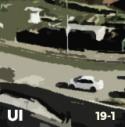
Urban India 2019 | Jan - Jun Volume: 39 | Issue: No. 1 Contemporary research in urban India is a reflection of current developments in urbanisation and urban policies. To elucidate, urbanisation in the country is at times hidden as cities and agglomerations expand beyond municipal boundaries as leapfrog development, very often not accounted as “urban” in the census enumeration. These new urban nodes are often than not unplanned and messy and result in urbanisation which is unacknowledged. Such uncontrolled growth of built up areas results in urban sprawl at times through encroachment of wetlands which in the long run affects the microclimate of the region. In contrast, the presence of natural amenities like river, lake, beach, forest and hill have an influence on the property value, and property buyers like to either pay a premium or factor them implicitly in their choice of property and its value. |

Urban India 2018 I Jan-Jun Volume: 38 | Issue: No.1 India, one of the largest countries of the global south, is at a crucial juncture of urbanization facing several challenges of urban growth. The current issue of the journal collates some of the studies addressing crucial themes of informalization of the urban economy, rural-urban linkages, mapping micro-urban concerns of the pedestrians, case of housing, experiences of slum eviction and the paradox of elderly population owing to youth outmigration in urban areas. All the research papers, included in this issue, have dealt with empirical data and review of literature relevant to their field of study.India, one of the largest countries of the global south, is at a crucial juncture of urbanization facing several challenges of urban growth. |

Urban India 2018 | Jul - Dec Volume: 38 | Issue: No. 2 Urban India has attracted the interest of scholars and academicians across the globe. The sheer magnitude of urban population, haphazard and unplanned growth of urban areas and lack of adequate infrastructure have attracted the attention of scholars and researchers. The current issue of Urban India addresses some of these challenges. This issue particularly looks at the domain of employment, migration and crime through a gendered lens using primary and secondary data sets. The issue of development in smart cities, land acquisition, rise in temperature triggering climate change, measuring bio-diversity using city biodiversity index and importance of small and medium towns in the socio-economic development of the country are some of the topics covered in this issue. |
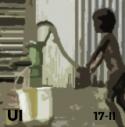
Urban India 2017 | Jul - Dec Volume: 37 | Issue: No. 2 URBAN INDIA is a bi-annual journal published by the National Institute of Urban Affairs, New Delhi. The July-December 2017 issue (Volume 37, No. 2), covers articles focusing on monetization of urban land, informal manufacturing sector, quality of life, linkages between urbanization and development, challenges of migration and social protection, influence of urbanization on soil infiltration rates, nature of slum growth and scope of private participation in municipal solid waste management. |

Urban India 2017 | Jan - Jun Volume: 37 | Issue: No. 1 This issue of Urban India covers research articles addressing urban environment issues ranging from managing safe drinking water through community participation to water sensitive urban development, and role of traditional wisdom in the urbanising landscapes of ancient towns. |

Urban India 2016 | Jul - Dec Volume: 36 | Issue: No. 2 According to the United Nations, 2.5 billion people are predicted to live in urban areas by 2050. This clearly emphasizes the need for a more efficient and sucessful urban planning agenda. Asia and Africa " will face numerous challenges in meeting the needs of their growing urban population, including for housing, infrastructure, transportation, energy and employment, as well as for basic services such as education and healthcare". |

Urban India 2016 | Jan - Jun Volume: 36 | Issue: No. 1 This volume continues the journey of following and monitoring India's urbanisation saga through various research papers, new stories and book reviewes. This volume has a section on data analytics where three different studies, utilizes statistical model/test, underscoring the role of robust analysis in managing urban issues. |
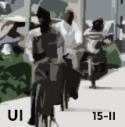
Urban India 2015 | Jul - Dec Volume: 35 | Issue: No. 2 While the earlier half of 2015 would be remembered for of some of the most promising national initiatives unveiled for cities by the Ministry of Urban Development (MoUD), Government of India, namely the Smart Cities Mission, Atal Mission for Rejuvenation and Urban Transformation (AMRUT), National Heritage City Development and Augmentation Yojana (HRIDAY) and last but not the least, Housing for All; the second half of 2015 is noticeable for several global initiatives that pose to hold substantial influence on local developmental issues particular to urban environment, planning and governance. |

Urban India 2015 | Jan - Jun Volume: 35 | Issue: No. 1 The early half of 2015 has been quite eventful for communities, scholars and practitioners associated with urban India. It has seen the official launch of some of the most promising initiatives unveiled for cities by the Ministry of Urban Development (MoUD), Government of India, namely the Smart Cities Mission, Atal Mission for Rejuvenation and Urban Transformation (AMRUT), National Heritage City Development and Augmentation Yojana (HRIDAY) and last but not the least, Housing for All. Collectively the schemes pose to be a reckoning and unprecedented force of such a scale, in transforming the living conditions of so many city dwellers in a planned manner in the history of human civilization. |

Urban India 2014 | Jul - Dec Volume: 34 | Issue: No. 2 This special issue of Urban India is dedicated to theoretical understanding, reportages and empirical findings on the nationwide status of capacity building and associated urban reforms, to meaningfully inform the current policy discourse. |

Urban India 2014 | Jan - Jun Volume: 34 | Issue: No. 1 The special issue on Migration presents a macro overview of internal migration in India and unique insights from the field on how rural people take migration decisions; what they experience in the city and the unique challenges they face in the process. The collection of articles in this issue inspire to think afresh about the issue of migration in Indian cities and urge to find creative responses to some of the pressing concern of urbanisation that cities are facing today. |

Urban India 2013 | Jul - Dec Volume: 33 | Issue: No. 2 This edition refers to reform initiatives in the urban infrastructure sector, urban local governance and waste water management, access to basic amenities, urban property ownership records, and discussion on indicators of metropolitan cities such as economic performance, employment status, poverty, inequality. |

Urban India 2013 | Jan - Jun Volume: 33 | Issue: No. 1 With an overarching theme of low carbon and climate resilient cities, this publication discusses how Delhi can be made a low carbon city, addressing biodiversity conservation through low carbon strategies, decoding urbanisation and GHG emissions, frameworks for sustainable urban habitat and climate change. Transit and landuse integration, pedestrian accessibility index and the concept of smart city for sustainable urban growth and development is also of prime focus. |
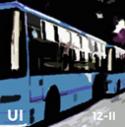
Urban India 2012 | Jul - Dec Volume: 32 | Issue: No. 2 This edition refers to a range of topics that discuss property tax, micro small & medium enterprises, urban public spaces, urban reforms, energy eficiency in ULBs, financing urban infrastructure, urban poverty alleviation and a critical review on Delhi Bus Rapid Transit (BRT) project. |

Urban India 2012 | Jan - Jun Volume: 32 | Issue: No. 1 The publication provides insights on slums in Mumbai and a sociological perspective of slums in Amritsar, that evolves in understanding the dire need for low-income rental housing. Further on, other articles emphasize on non-formal water mining, initiatives in participatory governance, maximizing non-tax revenues, urban public private partnership projects and ICT for green & sustainable cities. |

Urban India 2011 | Jul - Dec Volume: 31 | Issue: No. 2 This edition assesses the vulnerabilities of Indian cities to climate change, discusses the need for a flexible planning approach, evaluates the financial health of Indian cities, understands factors affecting voting behaviour of registered voters, studies the impact of environmental design, analyzes social networks in rural-urban migration and examines urban growth & its impact on environment & public health. |
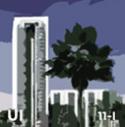
Urban India 2011 | Jan - Jun Volume: 31 | Issue: No. 1 The publication addresses urbanisation and access to basic amenties in Indian cities, capacity building of ULBs, crisis of the urban poor, revitalisation of historic districts, identifying reforms, urban housing, decentralized urban governance and role of citizen particiption. |
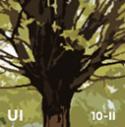
Urban India 2010 | Jul - Dec Volume: 30 | Issue: No. 2 The journal constitutes articles on green space preservation in cities, IT & IT enabled services, municipal credit rating for urban sector financing, quality of life, property tax reforms, sustainable transport principles, socio-economic profile of slum India and institutional readiness for public private partnerships. |

Urban India 2010 | Jan - Jun Volume: 30 | Issue: No. 1 The edition highlights issues and challenges of urban India, making of slum-free cities, progressing towards reforms pathway and good governance, using GIS application in urban heat islands, bridging urban-rural hinterlands, studying Chandigarh periphery zone and the city of Shimla to retrospect water supply system. |

Urban India 2009 | Jan - Jun Volume: 29 | Issue: No.1 This publication constitutes a variety of water related topics highlighting water supply for urban poor, urban water supply schemes, harvesting rainwater, water pricing regime; alongwith discussing a community-led sanitation program, a financing mechanism for municipal solid waste management, introduction to multi modal transportation system and examines the model municipal law. |

Urban India 2009 | Jul - Dec Volume: 29 | Issue: No. 2 This edition of journal highlights the need for establishment of a title registration system; in-situ upgradation of slum settlement in Delhi; fiscal performance of Municipal Corporation of Greater Mumbai; importance of security tenure in mitigating the housing problem in cities; importance of property tax as a revenue to urban local bodies and need for scientific method of assessment; and spatial pattern related to migration in districts of Maharashtra. Wiith this issue, Urban India completes thirty years of its publication. |

Urban India 2008 | Jan - Dec Volume: 28 | Issue: No. 1 & 2 This publication discusses multitude of urban thematic areas encompassing sustainable water supplies, special economic zones, fiscal performance of urban local bodies, megacities, basic urban services, planning & urban management, employment generation, inclusive societies and urbanisation as a holistic perspective. |

Urban India 2007 | Jan - Jun Volume: 27 | Issue: No.1 The publication comprises of articles that discuss urban decentralization, pro-poor governance of urban risks, urbanization on surface and ground water using Remote Sensing & GIS techniques, housing for inclusive cities, culture & migration, role of ICT in changing urban forms and sustainable urban development in the Indian context. |

Urban India 2006 | Jul - Dec Volume: 26 | Issue: No. 2 This issue draws rural-urban comparisons of crowding in houses, examines urban governance in the city of Bangalore, talks about the National Urban Transport Policy, land use transformations around metro stations specifically that of Kolkata, planning for human settlements, strengthening the urban local bodies through municipal accounting reforms and reviewing a book on 'Solid Waste Management in Indian Cities'. |

Urban India 2006 | Jan - Jun Volume: 26 | Issue: No. 1 The publication refers to envisioning city transformation for Mumbai, discussing urban financial management in developing countries, pattern of urbanisation in the state of Karnataka, pricing policy for public transport, studying the impact of drinking water quality and sanitation on child health. |

Urban India 2005 | Jul - Dec Volume: 25 | Issue: No. 2 This issue throws light on institutional innovations of urban governance, usbanisation and development scenario in the state of Maharashtra, property tax reforms, discussion on migration of women workers, waste picking as an activity, and a book review of 'Fortune at the Bottom of the Pyramid: Eradicating Poverty Through Profits'. |

Urban India 2005 | Jan - Jun Volume: 25 | Issue: No. 1 This issue discusses a multitude of aspects within the urban sector, laying emphasis on typologies of female migration, municipal finances in Maharashtra, HIV/AIDS amongst migrants and financial reforms. It also constitutes proceedings from a regional workshop conducted on model municipal law and presents a book review on 'Solid Waste Management in Resettlement Colonies of Delhi: A Study of People's Participation and Urban Policy'. |
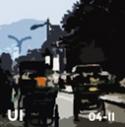
Urban India 2004 | Jul - Dec Volume: 24 | Issue: No. 2 The publication discusses case study scenarios for the state of Maharashtra on urbanisation and occupation, city of Bangalore on causes of rural-urban migration, city of Delhi on managing basic services in resettlement colonies. A conceptual inquiry on urban water systems is also examined. |

Urban India 2004 | Jan - Jun Volume: 24 | Issue: No. 1 This issue of the journal constitutes articles on three broad aspects. A Comparative Analysis of two southern metropolises of Delhi and Bogota on the models of commuting times; exploring issues and options for financing urban infrastructure in the stae of Punjab; and; a review of urban governance practices in Meerut district. |
Subscription Rates
Annual Subscription India INR 1000 Foreign US$ 20
Single Issue India INR 500 Foreign US$ 12
Payment can be made through Cheque / Bank Draft / WIRE Tranfers
Cheques/Bank Drafts should be drawn in favour of
“National Institute of Urban Affairs”,New Delhi, should be sent to the following address:
Editor, Urban India
National Institute of Urban Affairs
1st Floor, Core 4B, India Habitat Centre, Lodhi Road, New Delhi - 110003, INDIA
Ph: (+91 11) 24643284/24617517, Fax: (+91 11) 24617513
Email: editorurbanindia@niua.org
Website: www.niua.org
Payment can be made online as per the following details:
Account Holder Name: NIUA/General Account
Bank Name: State Bank of India
Branch Name: India Habitat Center
Address: India Habitat Centre, Lodhi Road, Delhi – 110003
Account No: 52142908059
IFSC Code: SBIN0061720
SWIFT Code : SBININBB
Urban India is a double-blind peer-reviewed journal which publishes original and high-quality research. The journal invites applications from eligible scholars and researchers who are experts in any of the fields in which the journal publishes articles and are willing to contribute to enhance the journal quality by providing their valuable reviewer comments.
Interested reviewers can send their CVs to journals@niua.org clearly stating their areas of expertise. Reviewers will be awarded a Certificate to acknowledge their contribution.
>Eligibility
- Qualification: The applicant must hold a doctoral degree or a faculty position in any university, or a research fellow or equivalent at any research institute
- Publications: The applicant must have published at least three academic papers in peer-reviewed journals.
- Area of expertise: The applicant must have good knowledge and research experience in any of the areas related to urbanization, urban development, urban governance, housing and infrastructure, inclusion, migration, municipal finance, environment, climate change, transport, application of GIS and remote sensing in urban areas or any other issues related to the urban sector.
- Command of English language: The applicant must have a strong command of English language with verbal and written fluency.
Responsibilities
- Maintain absolute confidentiality about the content of the manuscripts and keep their identity hidden from authors.
- Review submitted work in an objective, responsible, impartial and timely manner.
- The reviewer should not have conflict of interest with the authors and the subject matter of the article.
- Substantial similarities between submitted manuscripts and other published works of which the reviewer is aware, or any other suspected ethical misconduct to be reported to the editor.
- Provide 'follow up’ advice to the editor, if requested.
For detailed peer review guidelines refer https://niua.org/sites/default/files/Policy-for-Peer-Review.pdf